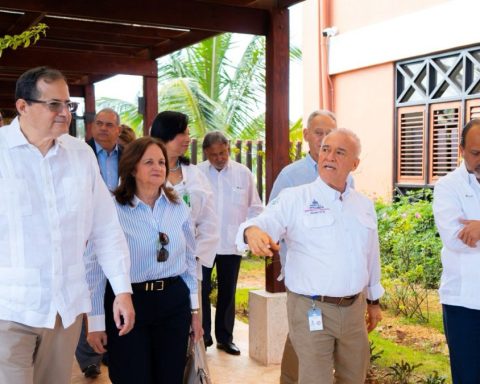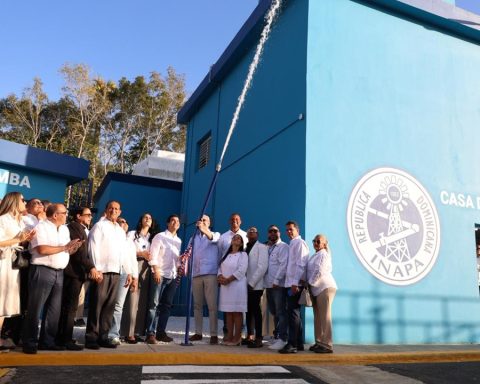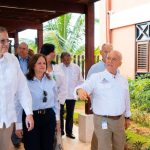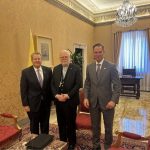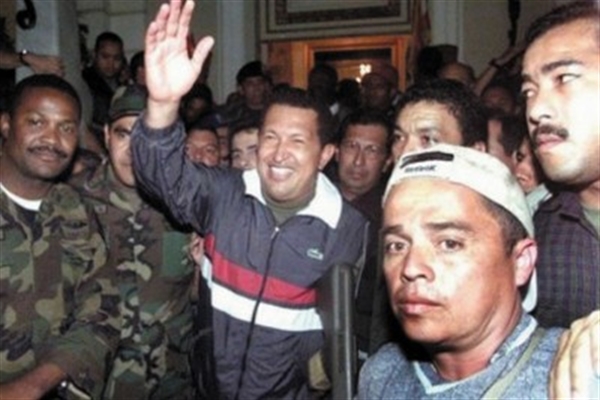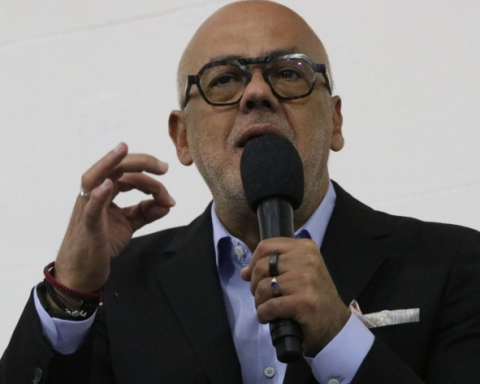Santo Domingo.- With songs, praises and prayers, hundreds of people made an appearance at the traditional Chrism Mass, held every year in the First Cathedral of America, in the Colonial City.
The cozy temple was dressed in white, the color of the clothing of more than 200 members of the clergy, belonging to the Archdiocese of Santo Domingo. Surprising number of attendees compared to previous years, according to those in charge.
Under the warm colors of the lights, the occasion was also used to commemorate the day of the institution of the Eucharist and the day of the priest, extremely important dates for Christians and the Catholic Church.
The solemn celebration began at 9:30 AM and was presided over by Monsignor Francisco Ozoria Acosta, Metropolitan Archbishop of Santo Domingo, accompanied by Auxiliary Bishops Ramón Benito Ángeles, Faustino Burgos Brisman, José Amable Durán and Raúl Berzosa.
After a brief and silent act of welcome, the long-awaited homily was given by Msgr. Benito Ángeles, Auxiliary Bishop of Santo Domingo, who took advantage of the moment to thank the opportunity to address the priests in such a special day for them.
In an extensive, but substantial speech, Angeles presented his message, based on the words of Pope Francis, where he expressed the four closenesses that a priest must have in life, also called the four constitutive columns; closeness to God, to the Bishop, among the priests and to the people.
Among his wise words, the Auxiliary Bishop stressed that “the bishop must be humble, must have the ability to listen and must have self-criticism.” Likewise, he pointed out that the bishop is not a supervisor of the people or a watchman, but a father who must be close to the people.”
You might also be interested in: Church calls not to slander others
priestly promises
After the homily and instead of the creed, the priests were invited to renew their consecration, their dedication to Christ and to the church.
In it, the ecclesiastical body with its books in hand, promised to faithfully carry out the ministry of preaching as followers of Christ, without intending to preserve temporal goods, but moved solely by the rescue of souls.
“Yes, I want” were the words pronounced in unison by the as a seal of their promises.
the oils
In the solemn Eucharist, the holy chrisms and oils were blessed, as well as that of the Catechumens and the sick; which are considered the main manifestations of the priestly fullness of the bishop.
These scented oils represent the Holy Spirit, and in addition to masses like this one, they are also included in baptisms, confirmations, anointing of the sick, and ordination of priests and bishops.
The oil paintings were delivered to all the priests present to be transferred to the different parishes of the country.

